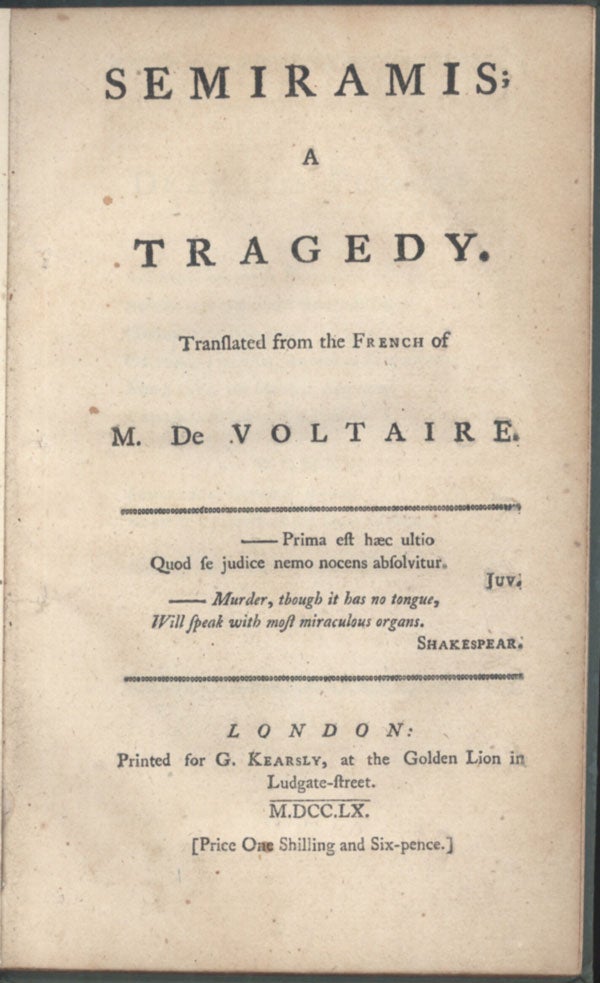SEMIRAMIS; A TRAGEDY. Translated from the French of M. De Voltaire. London: Printed for G. Kearsly, a the Golden Lion in Ludgate-Street. 1760. Small quarto, pp. [1-4] [1] 2-76, drab boards. First edition in English. Semiramis, ninth-century queen of Assyria (present-day Iraq), was, until the early twentieth century, a figure of legend that had been well-established as of the classical period: begotten of the fish-goddess Atargatis and fed by doves until her rescue by a royal shepherd; bride of general Onnes and successor to his power and eventually to the throne of Assyria; founder of Babylon and every other monument in the region; long-lived, brave, wise and sexually potent, she was turned into a dove at her death and worshipped subsequently as a surrogate of the Assyrian fertility goddess Astarte. Modern archaeological research by Lehman-Haupt and others has largely replaced legend with history, but the legend was still alive and well in Voltaire's time. She was a female personification of all that was gaudy and glorious in pre-Christian antiquity, and she furnished good material for this tragedy (Voltaire's preference in drama), composed in 1748, a year after his conte philosophique ZADIG. Voltaire's play has probably had more continuing vitality as the foundation of the libretto of the Rossini opera, "Semiramide" (1823), widely considered as one of the best, and last, operas in the Baroque style. ESTC T62226. The front paste-down bears the bookplate of Alaskan bibliographer James Wickersham, who attached to the rear paste-down the mailing label (with canceled stamp) of the British bookseller, McLeish & Sons, from whom presumably he obtained this book. Lacks the advertising leaf at rear, a very good copy. (#140101).
Price: $750.00
No statement of printing.


